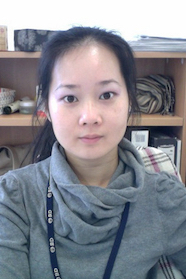
Contact Details
- Phone
- +64 21 155 9148
- kunyu.li@otago.ac.nz
- Position
- Research Fellow
- Department
- Department of Pathology (Dunedin)
- Qualifications
- PhD
- Research summary
- Immunotherapies and immunoregulation in chronic diseases
- Teaching
- Chemical Pathology for 200 and 300 Level MEL course
- Memberships
- 2020: Guest Editor for the Journal of Clinical & Translational Immunology
- 2020: Cancer Research Institute USA
- 2020: Crohn’s & Colitis Foundation the USA
- 2020: Gut Health Network, University of Otago
- 2019: Research Committee, Pathology Department, DSM, University of Otago
- 2016: Affiliate of the Maurice Wilkins Centre New Zealand
- 2009: Australia and New Zealand Society for Immunology
- Clinical
- Collaboration with Professor Michael Schultz in IBD research
- Collaboration with Dr Tamara Mullaney in IBD study
Research
I am an immunologist with a strong background in translational research in cancer immunotherapies, particularly cellular therapy for solid cancers.
My current research primarily focuses on Immunoregulation by both intrinsic and extrinsic factors in Chronic conditions, and how dysregulation of immune response could lead to tissue pathology. Cancer and autoimmune diseases are both chronic diseases that share common characteristics of dysregulation of immune responses to self-derived antigens. The finding of my previous research suggests that immune dysregulation in both cases could be closely linked. Thereby studying one could guide us to solve the problems or answer the questions of the other.
I am currently leading research projects in understanding tumour resistance to adoptive T-cell therapy (ACT), overcoming the limitation of ACT through genetic modification of tumour-reactive T cells, and immunoregulation by D133p53 isoform in the development and progression of inflammatory bowel disease (IBD).
I also have a longstanding interest in using Traditional Chinese Medicine to enhance immunity and treat chronic inflammation. I am currently setting up collaborations with TCM researchers in China.
Additional details
Research support
- DSM Dean’s Bequest Grant
- New Zealand Lottery Health Research Grant
- HRC Explorer Grant
Research projects available for postgraduate students
- The role of D133p53 isoform in IBD
- Understanding how tumour resistance to ACT arises
- ACT using genetically modified T cells in solid cancer
Publications
Ray Das, S., Delahunt, B., Lasham, A., Li, K., Wright, D., Print, C., Slatter, T., Braithwaite, A., & Mehta, S. (2024). Combining TP53 mutation and isoform has the potential to improve clinical practice. Pathology. Advance online publication. doi: 10.1016/j.pathol.2024.02.003 Journal - Research Other
Wiles, A. K., Mehta, S., Millier, M., Woolley, A. G., Li, K., Parker, K., Kazantseva, M., Wilson, M., Young, K., Bowie, S., Ray, S., Slatter, T. L., Stamp, L. K., Hessian, P. A., & Braithwaite, A. W. (2023). Activated CD90/Thy-1 fibroblasts co-express the Δ133p53β isoform and are associated with highly inflamed rheumatoid arthritis. Arthritis Research & Therapy, 25, 62. doi: 10.1186/s13075-023-03040-8 Journal - Research Article
Li, K., Ly, K., Mehta, S., & Braithwaite, A. (2022). Importance of crosstalk between the microbiota and the neuroimmune system for tissue homeostasis. Clinical & Translational Immunology, 11, e1394. doi: 10.1002/cti2.1394 Journal - Research Other
Mehta, S., Campbell, H., Drummond, C. J., Li, K., Murray, K., Slatter, T., … Braithwaite, A. W. (2021). Adaptive homeostasis and the p53 isoform network. EMBO Reports, 22, e53085. doi: 10.15252/embr.202153085 Journal - Research Other
Li, K., Wilson, M., Parker, K., Wiles, A., Schultz, M., Slatter, T., Baird, M., & Braithwaite, A. (2019). An Δ133p53-like isoform drives exaggerated immune responses to promote chronic inflammation. European Journal of Immunology, 49(Suppl. 3), (pp. 782). doi: 10.1002/eji.201970400 Conference Contribution - Published proceedings: Abstract